Now that FODMAPs are such a thing, everyone wants to know, “Should I do the low-FODMAP diet?”
Well, the answer is not obvious, despite what many will try to tell you.
And no, no it’s not for everyone. In fact, it’s not even for everyone who is in the gut healing vs. gut health stage.
Let’s explore the question today so you are empowered to make the best decision for you.
What is the Low-FODMAP Diet
The low-FODMAP diet is a diet, or a way of eating. It’s as plain and simple as that.
The way to go about a low-FODMAP diet is that you pay attention to the classification of foods known as FODMAPs.
FODMAP stands for Fermentable Oligosaccharides, Disaccharides, Monosaccharides, and Polyols, which are short chain carbohydrates and sugar alcohols that are poorly absorbed by the body.
If and when they are poorly absorbed, abdominal pain and bloating can surface.
Believe me, I know a lot about the diet. I have followed it on-and-off since 2014, and I wrote an e-book about it called Reasonable SIBO.
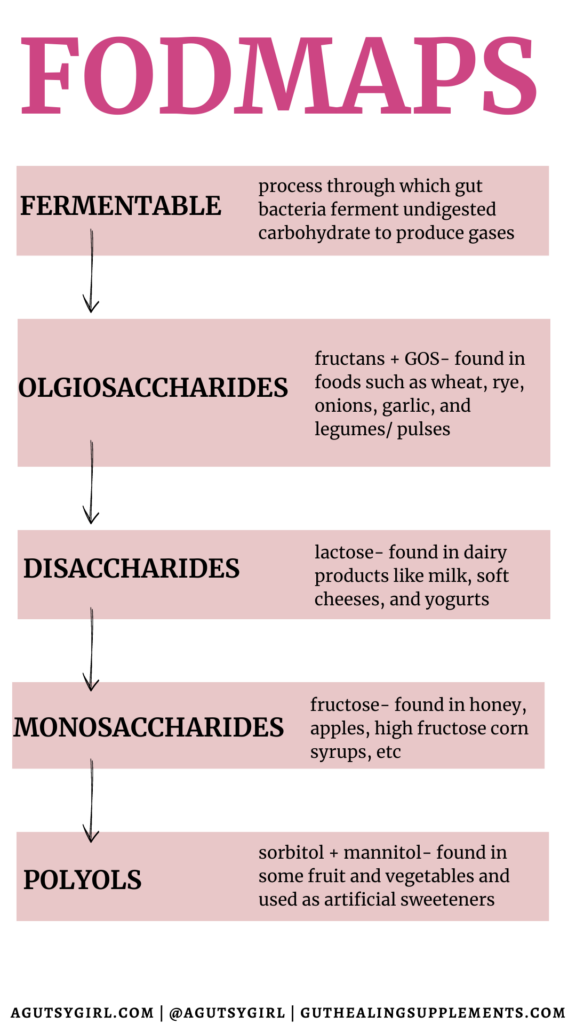
So because I have done the diet, had (and healed) SIBO, and produced this e-book, I’m constantly being asked for my thoughts around,
Should I do the low-FODMAP diet?
Here you go.
Should I Do the Low-FODMAP Diet
Click HERE to save this post for later.
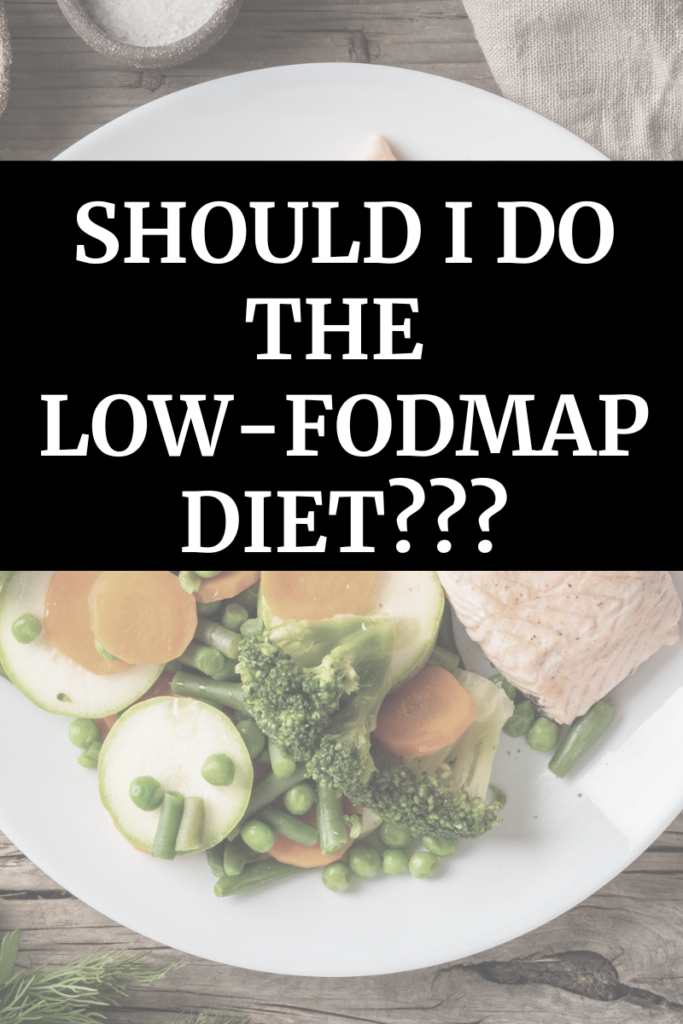
Now remember, when I am giving low-FODMAP diet pros and cons, these are almost purely opinion-based.
Yes, there is research both for and against my thoughts, but I believe each one of my statements are highly accurate.
After all, I was diagnosed with SIBO in 2014, have relapsed 5 times, and today am healed.
Take these for what they are worth to you.
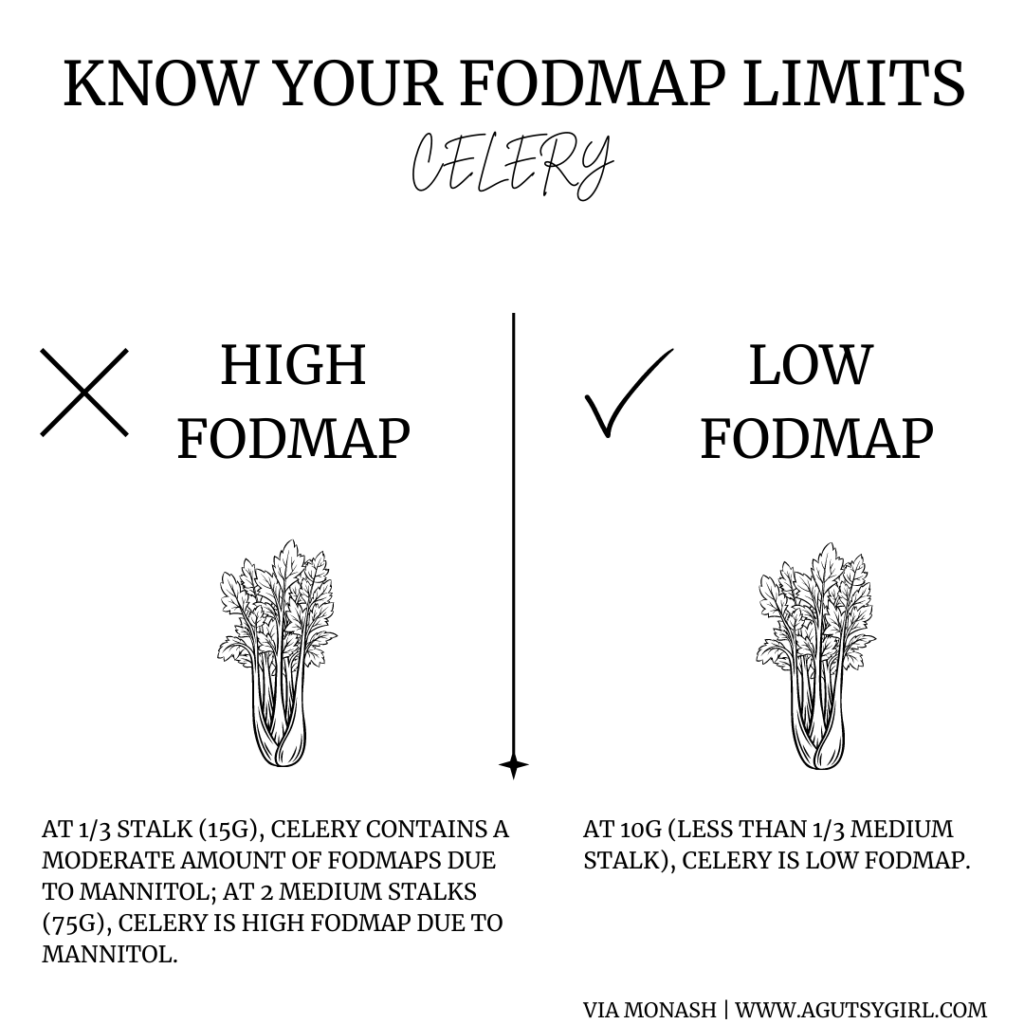
Low-FODMAP Diet Pros
You have been diagnosed with IBS and/or SIBO
The low FODMAP diet is part of the therapy for those with IBS and SIBO.
Research has found that it reduces symptoms in up to 86% of people. (source)
You’re strictly wanting to manage symptoms
As noted above, the diet is intended to “reduce symptoms.”
If you’re looking to manage the symptoms for any specific short-term reason (i.e. a big event where you can’t afford to be sick and miserable), then go for low-FO 🙂
It can be reasonable
When people confuse low and NO-FODMAP, problems are more likely to erupt.
For example: 1 teaspoon of agave syrup is low-FODMAP, but 1 Tablespoon is high-FODMAP.
If you enjoy agave, use 1 teaspoon, and then move on, it’s reasonable.
There are 310 graphics like this one in Reasonable SIBO to help you.
It’s just part of an elimination diet
If you’ve never (or hardly) done any dieting, but have been feeling miserable, knowing if you react to FODMAP foods could be useful.
Choosing to remove them in your elimination diet might help lead you to answers; the start of your journey.
But remember, if it’s part of an elimination diet, you must use a food journal to help you understand exactly what’s going on.
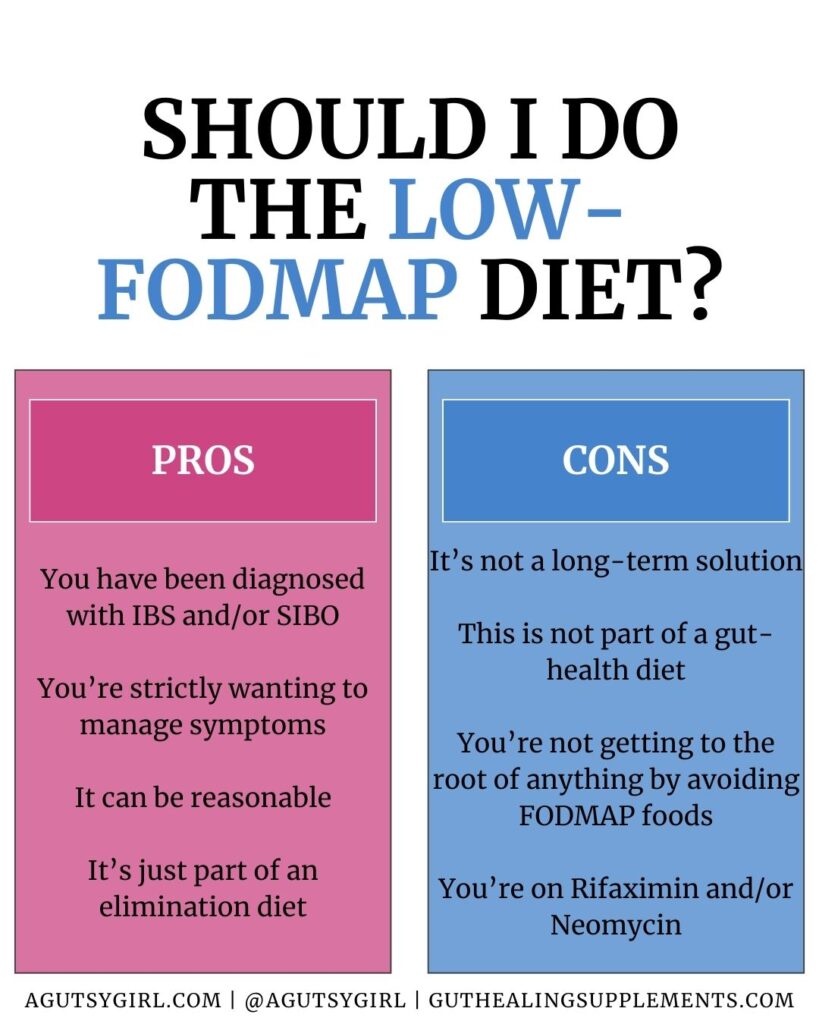
Low-FODMAP Diet Cons
Now remember, even though I’m giving these cons, do know that I have done the low-FODMAP diet on-and-off since 2014.
I am absolutely, positively not against it.
It’s not a long-term solution
A diet is short-term; lifestyle is long term.
However, too many people take the low-FODMAP diet and turn it into a lifestyle. Why? Because for many, symptoms are minimal. They feel good (or at least better) so they stay complacent.
But this should be a diet, not a long term solution.
The rest of the con points help explain why.
This is not part of a gut-health diet
Here are some common high-FODMAP foods: avocados, garlic, onion, asparagus, cauliflower, broccoli, and apples.
What else do those foods have in common? Right. They are healthy, actually healthy, and typically used as part of a gut health lifestyle.
If you stick with the diet for too long, you could be missing out on many healthy foods. And yes, yes I know that healthy is subjective.
You’re not getting to the root of anything by avoiding FODMAP foods
Let’s say you don’t actually know if you have SIBO or even informal IBS and you’re doing a long-term low-FODMAP diet.
You might never know what is truly the underlying condition.
Honestly? I don’t think I’ve ever met anyone who had IBS and “just” IBS.
If so, they simply never got to what else was hiding.
This diet could just be a mask; don’t let it be.
You’re on Rifaximin and/or Neomycin
Doctors and medical researchers continue to go back-and-forth on this.
Should one eat FODMAPs while treating SIBO with Rifaximin and/or Neomycin?
Most tend to agree that yes, you should be eating FODMAP foods, at least to the point of toleration.
The very first round of Rifaximin I did, I was not having any FODMAP foods until the very end when I sort of just gave up because I was still so miserable.
Those last few days I felt incredible, but relapsed fairly quickly afterwards.
Each time afterwards I always had FODMAPs as part of my diet while on the antibiotic(s).
You can read my most recent 28-day Rifaximin and Neomycin journal HERE.
Yes or No? Resources.
If you find yourself asking, “Should I do the low-FODMAP diet?” I’m going to encourage you to answer it for yourself by reading through the PROS and CONS lists again.
If you choose “YES, I’m going for it,” here are some resources to start now:
- A list of Favorite Low FODMAP Foods
- 14 Low FODMAP Snacks You Can Buy on Amazon
- 6 Low FODMAP Complete Proteins for Vegetarians and Vegans
And if you say, “Nope. Not for me,” here are some other resources to continue on:
- Gut Healing: ELEVATED
- A Gutsy Girl’s Bible: a 21-day approach to healing the gut
- 21-Day Quick Gut Detox
If you liked this article, you might also enjoy:
Xox,
SKH
🤰 bloating be gone! weight loss through optimal gut health for women
💃ʜᴇᴀʟ ʏᴏᴜʀ ɢᴜᴛ. ʜᴇᴀʟ ʏᴏᴜʀ ʟɪfe.
🫶🏻 founder gutbyome.com

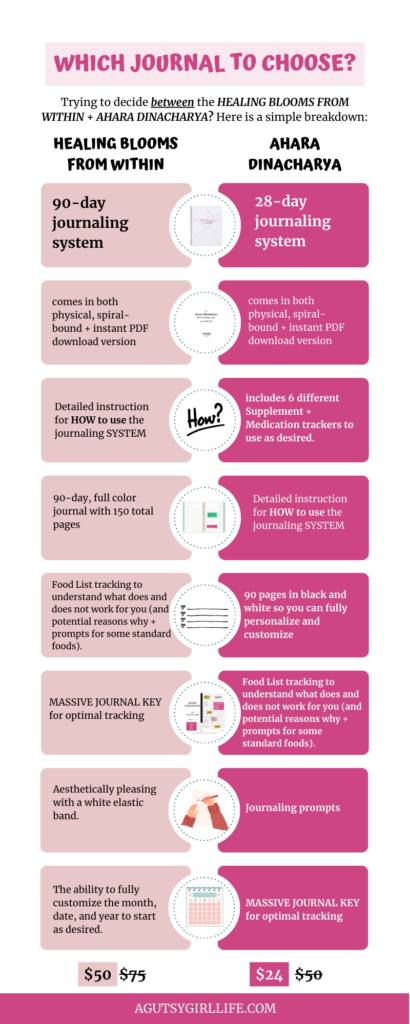


![Baked Pumpkin Donuts [Gluten Free Pumpkin Donut Recipe]](https://agutsygirl.com/wp-content/uploads/2016/10/pumpkin-donut-coffee-featured-agutsygirl.com-copy.png)
![What is Ayurveda – [The Ultimate Beginner’s Guide]](https://agutsygirl.com/wp-content/uploads/2024/10/ayurveda-featured.png)

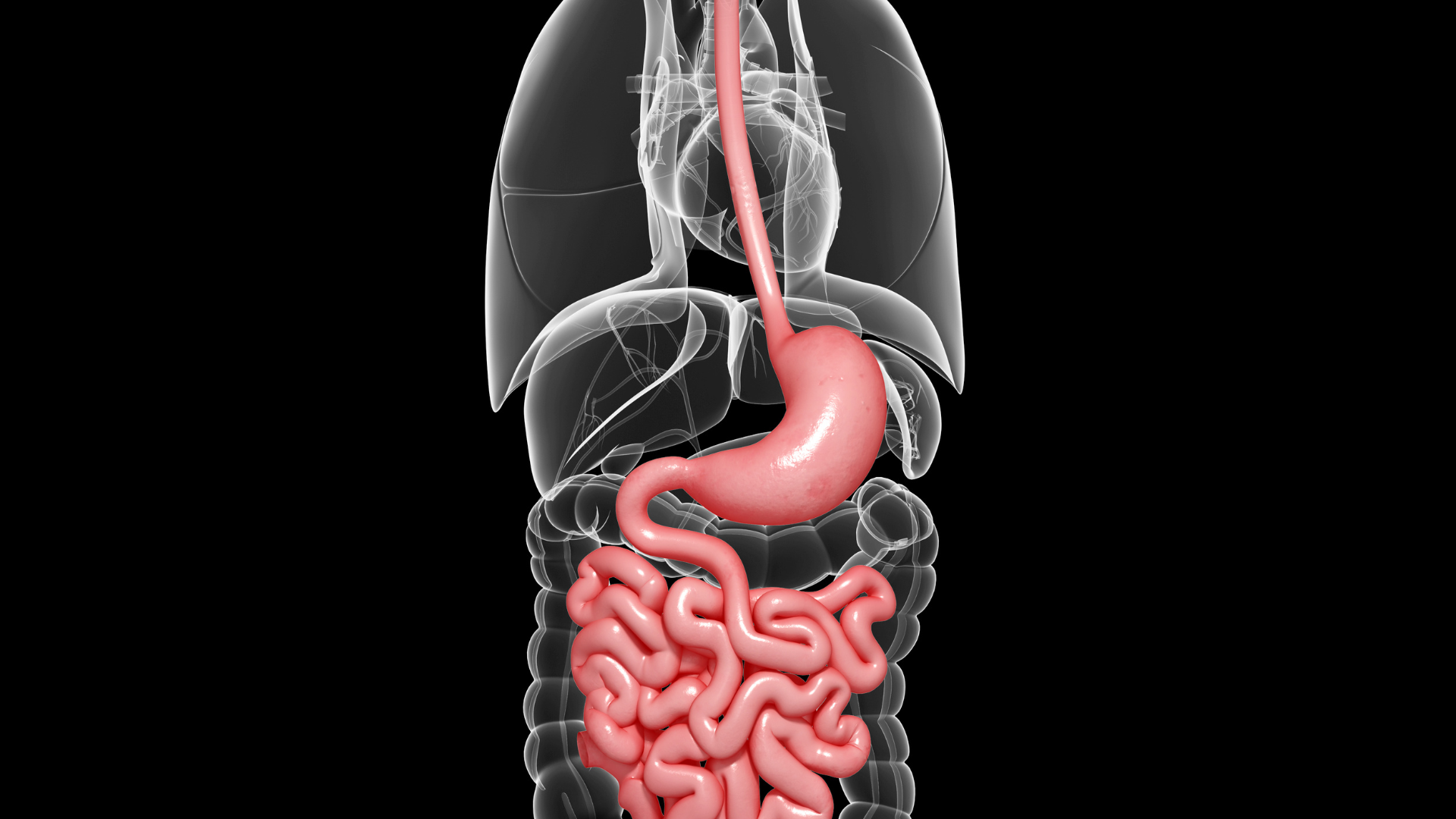
I couldn’t agree with you more on the con’s list. I remember when I did low fodmap to manage my symptoms (instead of getting the SIBO breath test). I did feel so much better, but once I reintroduced my symptoms got 10x worse. Also, no talks about the damage of being low fodmap for too long. I know for me it took my body longer to manage high fodmap foods due to messing with my gut flora. But I am happy to say now I have been SIBO-free for the past 6-months!
Yay! So happy for you, Sara.
Hi!!!!
I have been dealing with intense bloating for the last 8 years and this has only increased as I’ve gotten older – and I’m only 23 years old! Lately, it’s gotten so bad that I blow up like a balloon and stay that way for weeks on end! I feel like if you took a balloon and pointed it at my stomach, you’d pop it!
I recently got tested for SIBO, but apparently my test indicated a very low amount of sibo… which doesn’t make sense due to the level of bloating and constipation I experience. Oddly, the only diet that has helped me so far is the all-meat carnivore diet, and I’m concerned about this as i’m lacking fruits and veggies (my favourite foods) and other important components of a healthy diet. If i eat any other food I experience horrible bloating!
I’m concerned about going with rifaxamin and the other supplements as I’ve read all a sorts of negative reviews about them. I also experience extreme bloating with probiotics – even soil based ones – and so I dont really want to have these as they increase discomfort… I started trying neem, but I stopped as I read somewhere it doesn’t work…
My question is: is doing the carnivore diet for a short time safe? and can such a diet starve out SIBO?
Thanks